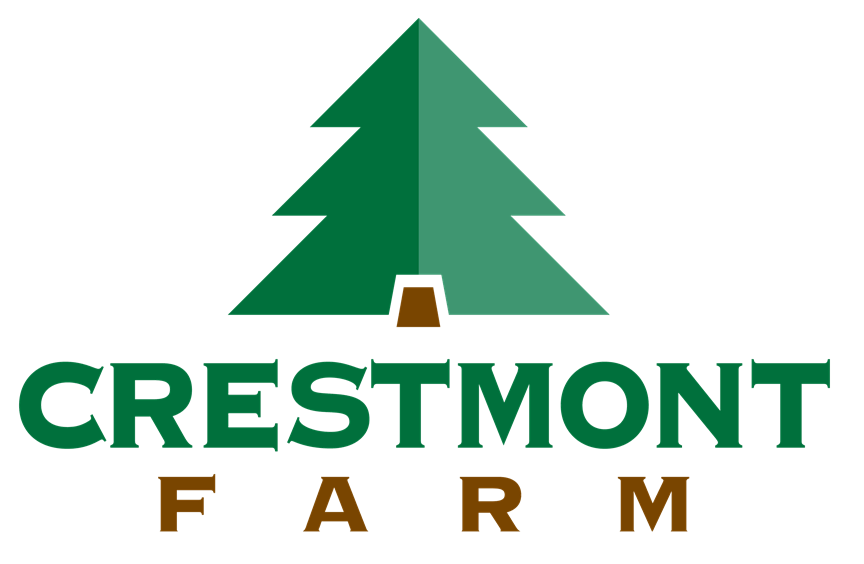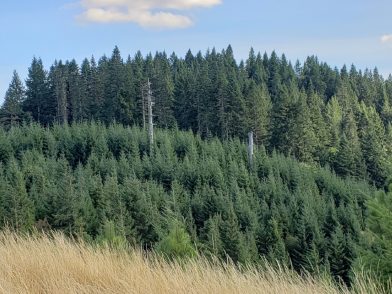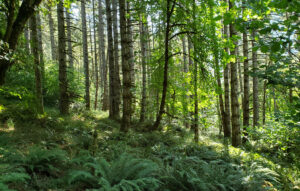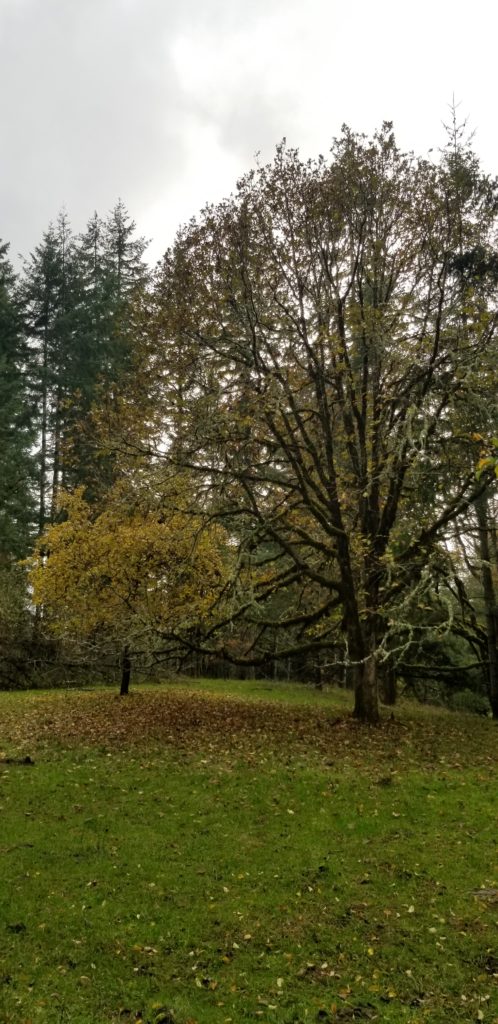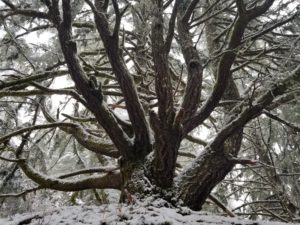Crestmont Farm owns and manages two types of forests. Almost half of the forested property consists of mature, mixed-species, naturally seeded forests. The other half consists primarily of Douglas-fir and Willamette Valley ponderosa pine trees that were hand-planted from the mid-’90s through the early 2000s. Crestmont not only seeks timber production from both forest types, but also applies a variety of habitat-related techniques to promote ecological integrity and biodiversity within the areas.
Crestmont believes that the dual objectives of timber production and habitat biodiversity complement each other and lead to better long-term production outcomes while also fostering enhanced ecological conditions. Not only does this approach promote favorable conditions for wildlife, native vegetation, and healthy soils, it also reduces the risk of wildfire, pests, and the effects from changes in the climate.
Crestmont Farm’s timber production property is actively managed by a team of professionals on a daily basis and is not open for public access. Nonetheless, tours are available at Crestmont Land Trust which cover many of the practices of land and forest management applied at Crestmont Farm.
Timber production is not limited to plantation stands of Douglas-fir. Other species of trees are important for the construction of many different products. Oregon white oak is sustainably managed and harvested for a variety of uses ranging from commercial hardwood flooring and furniture to onsite habitat initiatives that include bridge construction and unique ‘hobbit shire’ furniture installments.
Oak that has been grown in and among other trees tends to grow straighter and more upright with fewer branches. The ‘flag-pole’ structure occurs because of competition for sunlight resources. When these trees are removed, the remaining trees tend to grow with a more openly grown mushroom-like shape. Further, the unique habitat that an Oregon white oak forest creates brings ecological diversity to the tree production landscape.
Crestmont Farm, Crestmont Ranch, and Crestmont Land Trust, as the Crestmont Farm Family, collaborate on habitat-related initiatives across the adjoining properties. Each area uses a multifaceted and comprehensive management approach for their respective forests, woodlands, and associated ecosystems.
Ed Easterling and the Crestmont Farm Family were designated as Benton County’s Outstanding Tree Farmer of the Year 2020, Oregon Outstanding Tree Farmer of the Year 2021, and National Finalist/Western Regional Outstanding Tree Farmer of the Year 2022.
The primary criteria to receive the Outstanding Tree Farmer of the Year designation relate to the American Tree Farm System’s eight Standards of Sustainability: (1) commitment to practice sustainable forestry (which includes conifer plantations, oak savannah, silvopasture conditions, etc.); (2) compliance with laws; (3) reforestation and afforestation, (4) air, water, and soil protection; (5) fish, wildlife, biodiversity, and forest health; (6) forest aesthetics; (7) protecting special sites (including historical, archeological, cultural, geological, biological, and ecological); and (8) forest product harvests and other activities.
More information about the eight Standards of Sustainability is available at the American Tree Farm System website.
